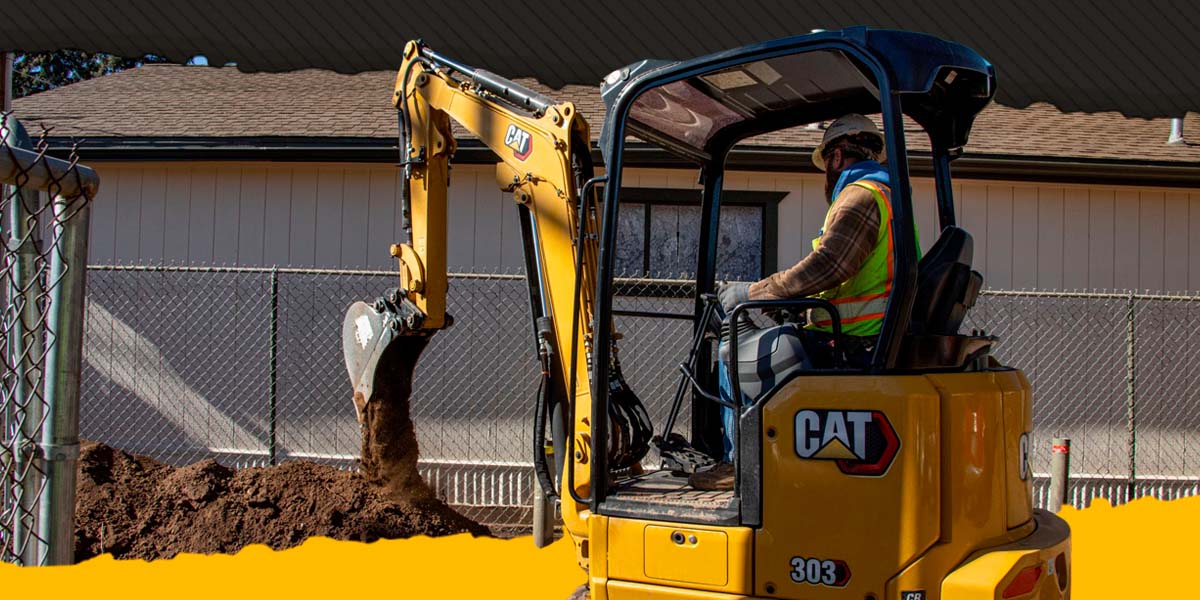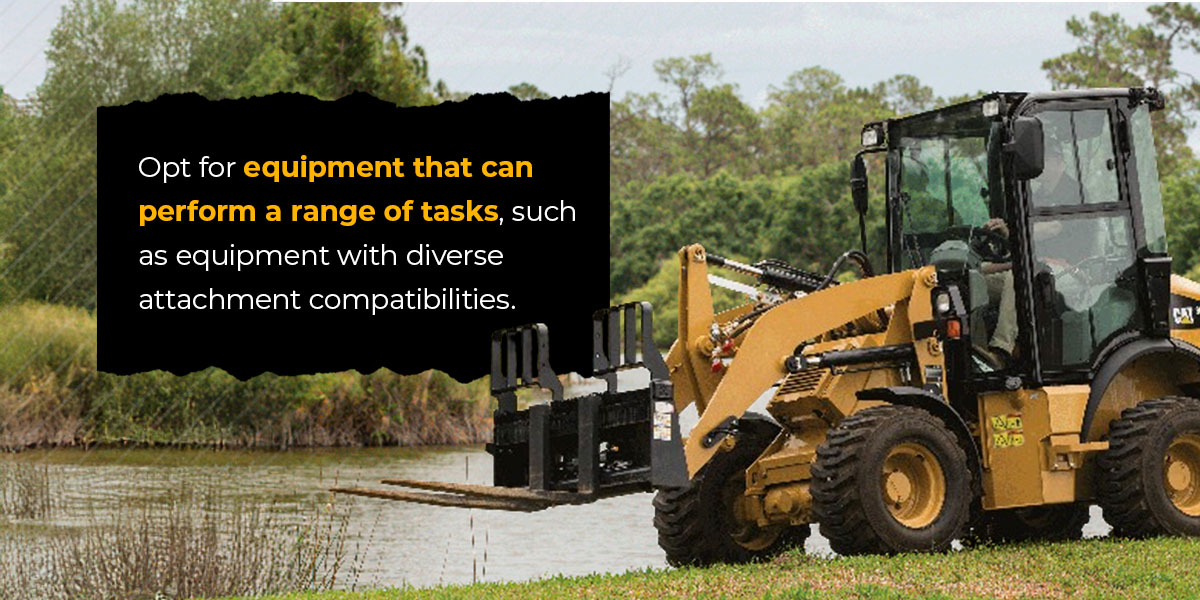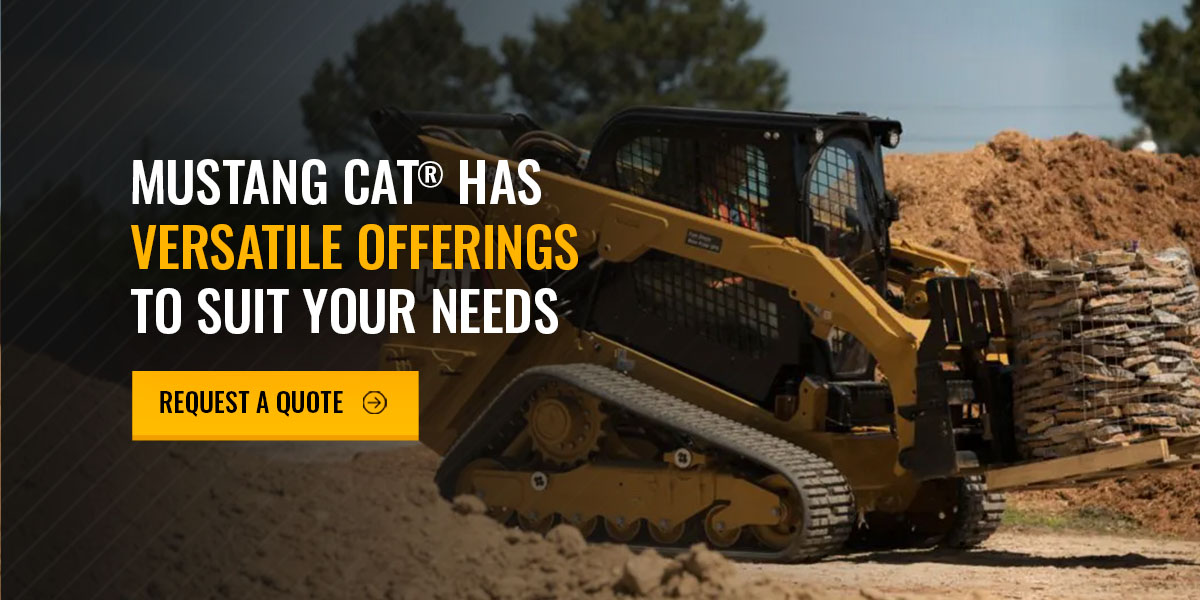Compact Construction Equipment for Small Contractors
Compact construction equipment is often the go-to choice for small contractors. The machines are typically smaller and lighter than their conventional counterparts, and they’re also cost-effective, convenient to store and easy to use. These are just the tip of the iceberg of some of the benefits they offer.
Before buying or renting these machines, it’s best to understand their capabilities and how they can benefit you. Learn more about the available mini construction equipment in the market, to make informed decisions about which ones to add to your fleet.
Types of Compact Construction Equipment for Small Contractors
The following compact machinery are some of the most widely used and can help you take on smaller projects and deliver excellent results:
- Mini excavators: These are versatile machines in the construction, agriculture and landscaping industries. They are ideal for digging, lifting and trenching, so they are handy for projects that may involve demolition, material handling, pipe laying or site clearance.
- Skid steer loaders: Skid steers can be a great addition to your fleet if you typically work in tight spaces. They have a wheel mechanism that allows the wheels on each side to move at different speeds and directions. Skid steer loaders are highly versatile, and you can equip them with various attachments, such as forks, buckets and trenchers.
- Mini wheel loaders: This machine can be used for tasks such as loading or moving materials.
- Compact track loaders: These loaders use tracks instead of wheels for earthmoving tasks and work well on soft or uneven terrain.
- Mini backhoe loaders: Mini backhoe loaders are ideal for trenching, digging and handling material. They’re often used in utility work, landscaping, and other small construction tasks.
- Compact rollers: These machines can compact soil, concrete, gravel or asphalt. You can typically find them in jobs involving road construction.
- Compact telehandlers: Telehandlers help lift and move materials in high places. They combine the features of a forklift and a crane.
- Compact cranes: As the name suggests, these are smaller versions of standard-sized cranes. They help lift and place materials in different locations.
Key Benefits of Compact Equipment for Small Contractors
Adding compact machinery to your fleet has many advantages. Here’s a closer look at some of the most notable ones:
- Cost-effectiveness: Investing in compact construction equipment for small jobs may be the ideal solution to help you meet your project needs, especially if your budget is tight right now or you’re working with limited resources. These small yet effective machines can help you save on fuel and maintenance. They’re also often more affordable to purchase or rent.
- Ease of transport: Transporting standard construction vehicles has many challenges, such as location constraints, exceeding weight limits and even regional transportation restrictions. On the other hand, compact machinery takes up less space, is easier to tow and some don’t even require special permits to use on smaller models.
- Maneuverability: Compact equipment can be a great option if your construction site is tight and has little room for large machinery. It makes it easier for operators to maneuver and navigate through tight spaces.
- Efficiency: If you’re working on smaller-scale projects, moving large machinery around can be time-consuming and affect your efficiency. On the other hand, smaller, lightweight equipment is easier to operate, transport and maneuver. These factors can help your team complete their tasks and stay on schedule.
Choosing the Right Compact Equipment for Your Needs
Choosing suitable machines for your projects begins with understanding the following key factors:
1. Understand Your Typical Project Requirements
You need construction equipment that satisfies the requirements of your projects. Answering these questions will help you determine what you need:
- What types of projects do you usually take on?
- Do you work locally or out of state?
- Do you need to transport equipment?
- What are the typical site conditions?
For example, if you often take on jobs where you work on mud or sand, compact track loaders that use tracks to move may be a great option. On the other hand, if you typically work on paved roads, vehicles with wheels can be better suited.
2. Prioritize Versatility
Versatile equipment will help you get more done with less machinery. It also allows you to take on diverse projects. So opt for equipment that can perform a range of tasks, such as equipment with diverse attachment compatibilities.
3. Consider Various Attachments
From buckets to hammers, forks and rakes, attachments can enhance the versatility of the compact equipment you choose. Consider your projects and the different attachments that will make work more efficient. Ensure the attachments suit your equipment and help your operators streamline their efforts.
4. Look at the Technology
There have been many incredible advancements in construction technology. Some solutions can help you integrate your management systems, increase productivity and ultimately streamline your projects. For example, Mustang Cat® provides VisionLink® to help you monitor location, fuel burn and equipment utilization. You can also use it to detect health and maintenance challenges, fluid contamination and more.
5. Speak to an Expert
There is a variety of compact construction equipment to choose from, and sometimes, you might just need to talk to an expert. They may highlight important factors you may not have considered, you can ask questions about anything you’re unsure about, and ultimately, they can help you get the most out of your investment.
Buying vs. Renting
The choice between renting or owning construction equipment isn’t always straightforward. You’ll need to consider important factors like:
- The monthly cost of renting or purchasing the equipment. In addition, take into account costs related to repairs and maintenance.
- The tax implications of either option. Whether you’re renting or buying, both options are eligible for business tax deductions.
- The typical needs of your projects. For example, you may choose to purchase machinery that you often use and then rent what you seldom need.
- The transportation of the equipment and general logistics. Assess the costs of moving the equipment by yourself or with the help of a rental company.
Mustang Cat® Has Versatile Offerings to Suit Your Needs
Mustang Cat has a variety of compact equipment to help you meet your construction needs. We’ve been in the business since 1952 and our expertise has helped small contractors like you find the right tools to run their businesses efficiently.
If you’re working on long-term projects, you can explore our inventory of new and used equipment. If you only have short-term needs right now, our rental fleet may be the best choice for you. Visit a Mustang Cat location near you to get all the tools you need for your next job.
Contact Mustang Cat and one of our experts will be ready to help you find the right machinery.





